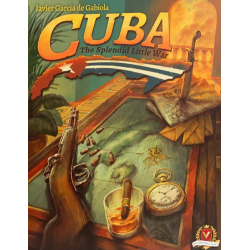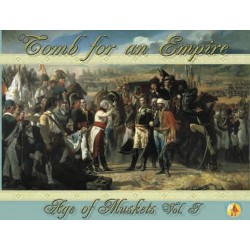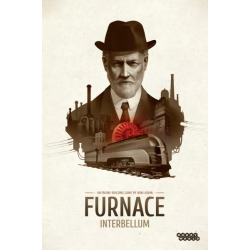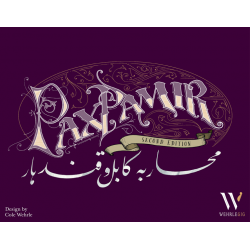No products in the cart.
Active filters
Toriki: The Castaway Island
It is the 19th century. You are teenage members of the first scientific expedition to the semi-legendary uninhabited Toriki Island. Just as you’re about to reach your destination, your ship gets caught in a storm and crashes on underwater rocks. With the last of your strength, you swim to shore, and that’s when your adventure begins! Do you have what it takes to face the challenges of a desert island?
Cuba: The Splendid Little War
Cuba: The Splendid Little War, from designer Javier Garcia de Gabiola, is a two-player simulation of the third War of Cuban Independence, which lasted from 1895 to 1898. (This was the last of the three liberation wars fought between Cuba and Spain; the previous wars were the Ten Years\' War (1868-1878) and the Little War (1879-1880). One player controls the forces of the Spanish colonial government, fighting to retain Cuba; the other player controls the Cuban rebels fighting for their independence.
Age of Muskets Volume I: Tomb for an Empire
Age of Muskets is a rule set that covers the campaigns from the late XVII century to the first half of the XIX. It emphasizes Command and Control as well as the uncertainty and friction of any military operation. Players take command of an army of the period, represented by their headquarters, and control their attached units, their men and equipment. The purpose is to re-create all the relevant factors of war at the operational level in the pre-industrial age.
Furnace
Furnace is an elegant engine-building euro game where the players take on the roles of 19th-century capitalists building their industrial corporations and aspiring to make as much money as they can by purchasing companies, extracting resources, and processing them in the best combinations possible.
Furnace: Interbellum
Furnace expands into the twenties and thirties of the twentieth century — the interwar period known as the interbellum. In this expansion, you will find new Company cards and Capitalists, new abilities, Manager tokens, variable Capital discs, a set of components for a fifth player, and new Agents for two-player and single-player games. All of this exists within beautiful industrial buildings and structures from the epoch of Art Deco, Constructivism, and Bauhaus.
Pax Pamir: Second Edition
In Pax Pamir, players assume the role of nineteenth century Afghan leaders attempting to forge a new state after the collapse of the Durrani Empire. Western histories often call this period "The Great Game" because of the role played by the Europeans who attempted to use central Asia as a theater for their own rivalries. In this game, those empires are viewed strictly from the perspective of the Afghans who sought to manipulate the interloping ferengi (foreigners) for their own purposes.












